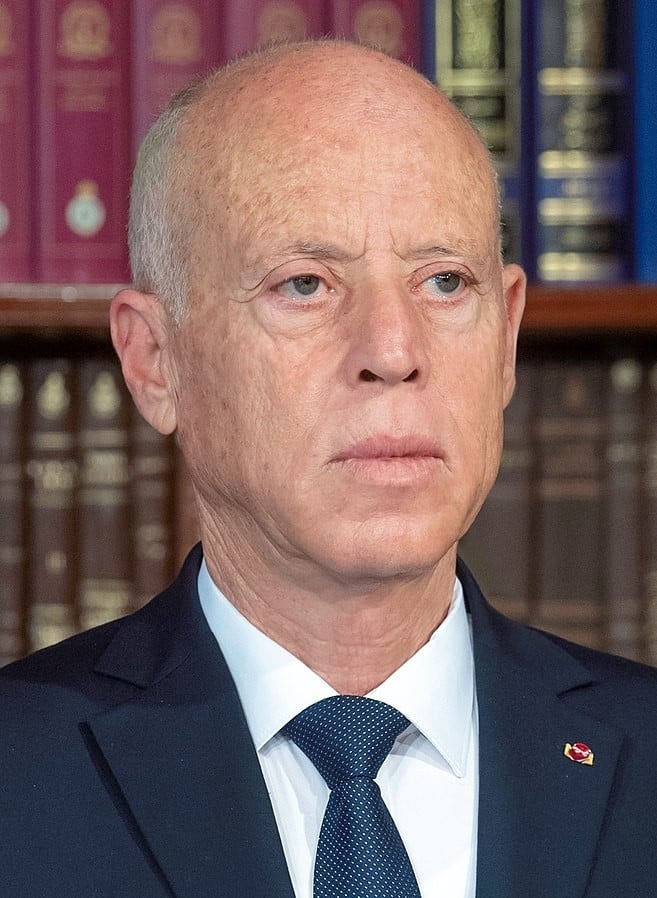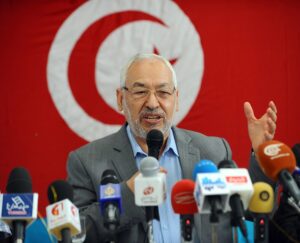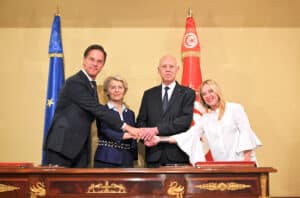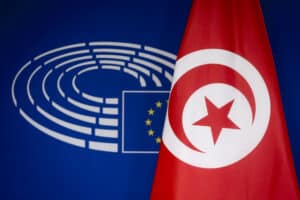Portrait of President Kais Saied in 2019 (source: Wikimedia Commons)
The National Salvation Front, a faction of Tunisia’s main opposition parties, has called for boycotting the country’s parliamentary elections next December. The elections were announced by Tunisian President Kais Saied in December 2021, after he had implemented emergency measures and suspended parliament earlier that year, on July 25. Since, Saied has solidified his one-man-rule, by officially dissolving parliament, seizing control of the electoral commission, and enshrining his powers through a constitutional referendum.
The National Salvation Front accuses Saied of carrying out a coup. According to Ahmed Nejib Chebbi, the head of the alliance, the elections in December will be held under the supervision of a body that is “not neutral and loyal to the ruling authority”.
Boycott constitutional referendum
The coalition consists of the four major opposition parties from the dissolved parliament: Ennahda, the Heart of Tunisia party, the Dignity Coalition, the Movement party, and Al-Amal party. The moderate Islamist Ennahda party was the most influential of the four opposition parties in post Arab Spring Tunisia. It has dominated the country’s governments after the Revolution and was the largest party in the parliament suspended by Saied.
The alliance previously called for boycotting the constitutional referendum in July 2022, that greatly expanded Saied’s powers. The turnout for the referendum was 30.5% of the registered voters, of which 94.5% voted yes. The low turnout could not only be attributed to calls to boycott, but also resulted from widespread political apathy among the Tunisian population. Civil society groups have questioned the outcome of the referendum, which was overseen by an electoral commission controlled by Saied. Several rights groups have demanded the raw vote data and have called for a recount.
Support Saied
Saied, a former professor of constitutional law, won the presidential elections of 2019 as an independent candidate, presenting himself as an outsider from the Tunisian political establishment. His victory primarily relied on votes from young Tunisians, who were disillusioned with politics and suffered from high unemployment rates. Saied’s implementation of the emergency measures in July 2021 followed months of protests. Demonstrators demanded solutions for the high unemployment rates, the corona crisis, police brutality and corruption. Initially, Saied’s move received widespread support from the Tunisian population, with polls measuring around 87% approval rates for Saied’s actions. However, critics have accused the Tunisian President of democratic backsliding and carrying out a coup.
“The only Arab democracy”
Saied’s power grab came as a surprise to many. After the Arab Spring of 2010/2011, in which protesters around the Arab World had taken to the streets to demand social justice and political freedom, Tunisia was the only country to establish a successful democratic system. Western observers and policy makers hailed Tunisia as a success story, dubbing it “the only Arab democracy”. But they overlooked the growing political disillusionment among many Tunisians, who had become increasingly disenchanted with the country’s widespread corruption and worsening economic conditions.
Parliamentary elections are scheduled later this year, on December 17. In the meantime, Tunisia’s political crisis is deepening, and its economic crisis worsening. At the same time, Saied still holds support from a significant share of the Tunisian population. The former law professor continues to be seen as a beacon of hope in a corrupt political system by many.
Sources: Africanews, France 24, Al Jazeera, Middle East Monitor, The New York Times
Photo: Wikimedia Commons



